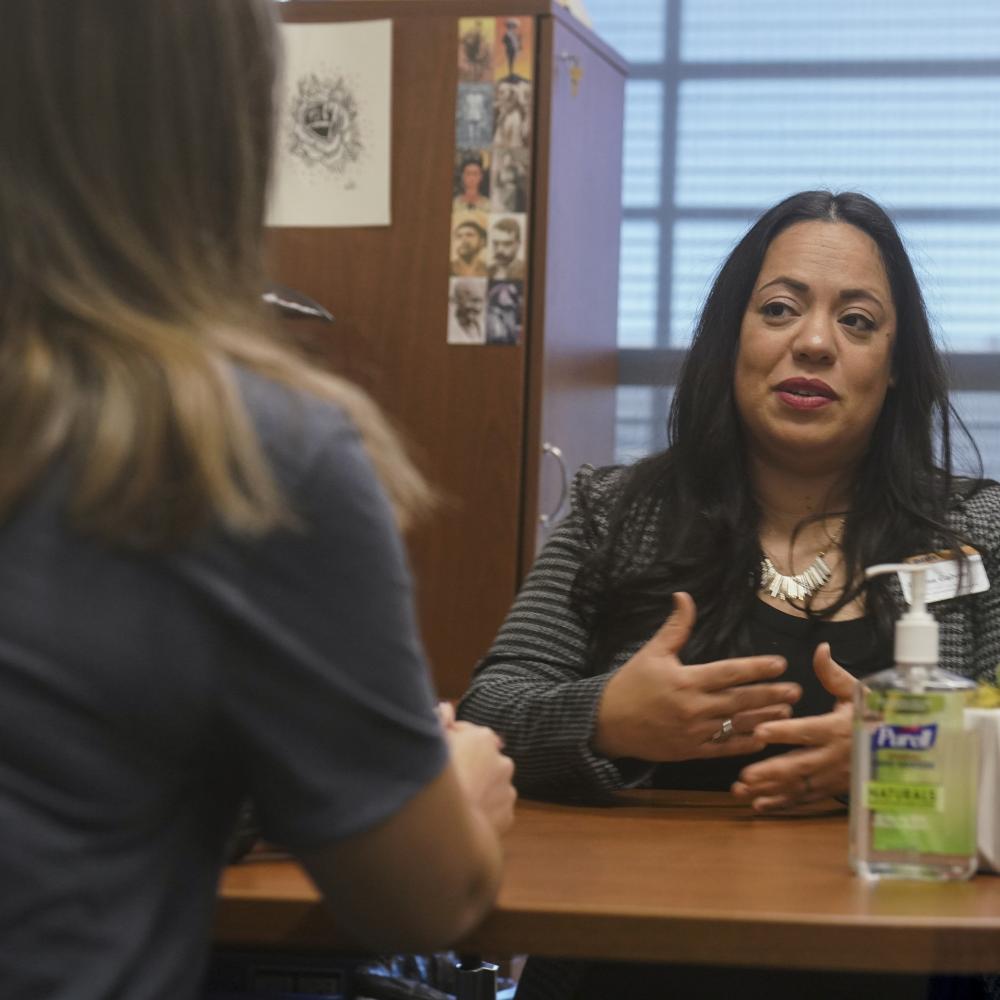New! Did you miss our recent webinar going over resources for Undeclared students, or want to review the information? You can click here to view the slide deck!
Undeclared/Undecided is a great way to start
Did you know that most students change their major at UC Davis? If you are starting your first year in an Undeclared major, or if you are undecided about your declared major, you are not alone. We encourage major exploration and offer guidance and resources to support the process of deciding on a major.
The College of Letters & Science provides a unique environment for self-discovery at a critical time in students' development. We are committed to supporting and empowering students as they create an individualized plan for self-exploration and thoughtful investigation of major and career options.
- Exploring majors is a good idea!
- You may find multiple majors that you would enjoy.
- Majors do not always dictate a certain career.
- Deciding on a major may be easy for some students, and more difficult for others, and that's why the College of Letters & Science has programs specifically designed to support students in their journey of discovery.
Undeclared Major Options
When you apply to UC Davis, you may choose from one of the four undeclared major options in the College of Letters & Science:
- Undeclared -- Fine Arts
- Artistic expression, study of the visual arts in civilizations and across media, production of audio-visual and digital texts, socially responsible and sustainable design, and performance all form the core of the arts at UC Davis. Students who pursue majors in the arts learn to think practically and humanistically about the world and their place in it, while also learning to translate their unique vision into creative representations of universal concerns and aspirations that illuminate the human experience. Majors in the arts range from cinema and digital media, art and art history, and music to theatre and dance, design, and art studio. Undeclared majors in the arts have a wide diversity of choices to explore and combine for a rich and rewarding beginning to their studies at UC Davis.
- Undeclared -- Humanities
- Cultural literacy, literary analysis and expression, writing, language, women’s and gender studies: these disciplines are at the core of the humanities at UC Davis. Students who pursue majors in the humanities learn to present new ideas and inspired solutions to the most pressing problems. Attending to past, present, and emergent cultural formations and interpreting culture becomes ever more important as global communication technologies, political forces, and environmental concerns reshape knowledge.
- Undeclared -- Social Sciences
- From research with individuals, groups, and societies to studies in politics and economics, majors in the social sciences learn to ask challenging questions, solve complex problems, becoming the next generation of global leaders. Majors in the social sciences range from anthropology, economics, communication, political science, and linguistics to psychology, sociology, and history, among many others. Undeclared majors in the social sciences have a wide diversity of choices to explore and combine for a rich and rewarding beginning to their studies at UC Davis.
- Undeclared -- Physical Sciences
- Study of the physical sciences advances discovery and helps answer some of today’s biggest questions, seeding innovations that will shape the next century and beyond. Students who study the physical sciences at UC Davis are the pioneers of global solutions for tomorrow’s problems. Majors in the physical sciences include mathematics, geology, marine and coastal sciences, statistics, chemistry, and physics. Undeclared majors in the physical sciences have a wide diversity of choices to explore and combine for a rich and rewarding beginning to their studies at UC Davis.
Check out these UC Davis articles to learn more about the benefits of major exploration.
- Starting As An Undeclared Major Can Be a Great Choice
- 4 Things to Consider Before Changing Your Major
- Changing a Major in College -- Should You Do It?
Consider subscribing to the Majors Blog newsletter to explore the connection between UC Davis majors and careers.
Subscribe to the Majors Blog newsletter
Major Exploration
The College of Letters & Science is committed to supporting and empowering students as they create an individualized plan for self-exploration and thoughtful investigation of major and career options. Major exploration includes exploring majors knowledge, self-knowledge, and career knowledge. Download our self-paced Major Exploration Guide then review each of the four sections listed below. You can use the completed guide yourself or discuss it with an academic advisor during the school year.




